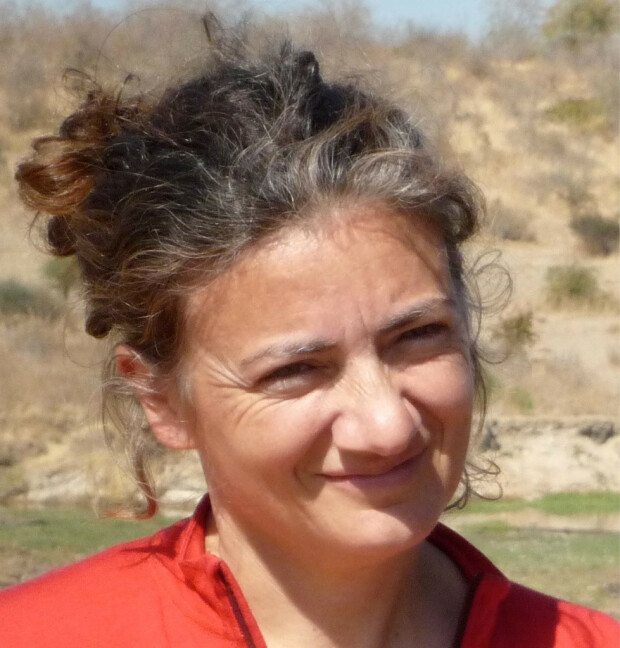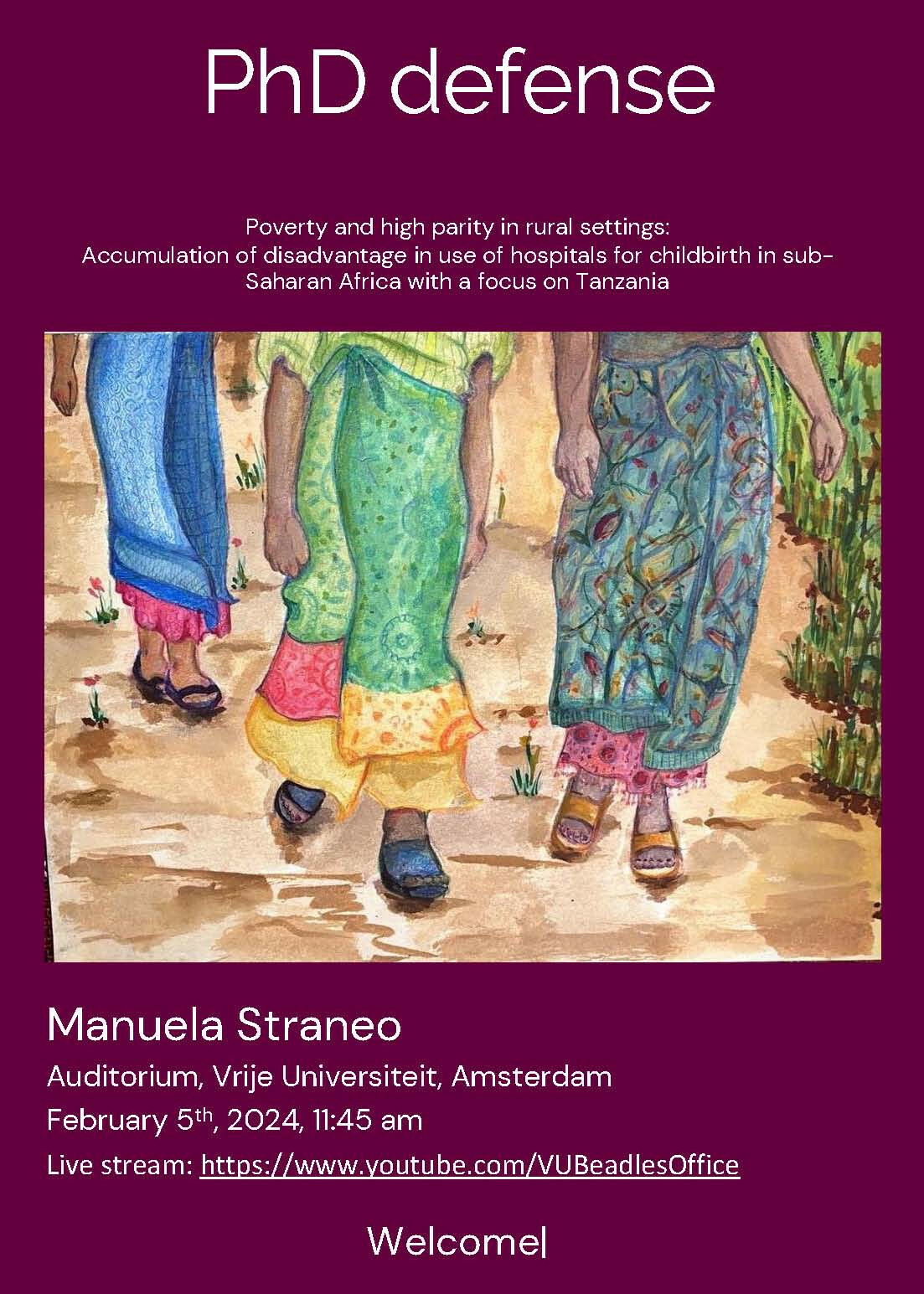PhD defence Manuela Straneo
Vrije Universiteit Amsterdam, Hoofdgebouw Auditorium, De Boelelaan 1105, 1081 HV Amsterdam, Netherlands
Toon route
Supervisors
Prof. Dr. Lenka Benova (ITM)
Prof. Dr. Thomas van den Akker (Vrije Universiteit Amsterdam, Netherlands)
Prof. Dr. Claudia Hanson (LHSTM, UK & Karolinska Institutet, Sweden)
Abstract
In this thesis I have studied where women give birth within the health system in sub-Saharan Africa, firstly in Tanzania and then in other countries, focusing on the use of hospitals in rural settings. Though childbirth care is available at different levels of the health system, hospitals are generally where advanced management of childbirth complications is available. This is particularly important for women with risk factors, at greater risk of complications and death. The research has examined the interaction of biological risk (high parity) with socio-economic vulnerability (poverty), identifying a subgroup of women who are poor, rural and of high parity who, despite greater risk of childbirth complications, have lower use of hospitals.
In Iringa rural district in Tanzania, with nearly universal facility births coverage, my co-researchers and I found poor women were underrepresented in the only hospital in the district. This finding led to hypothesizing that women from poorer households were more likely to use primary care facilities for childbirth.
Use of hospitals in all Tanzania was studied using nationally representative Demographic and Health Survey data. In rural Tanzania, we found that the effect of poverty on use of hospitals depended on the level of parity. Women who were both poor and at high parity used hospitals least: only around one in ten women who were poor and at high parity had given birth in a hospital in the period studied. The complex interacting and interdependant factors related to high parity, poverty and rurality are likely to be responsible.
High parity, poor, rural women have remained marginalized in use of hospitals over the most recent 25 years for which data were available (1991-2016). This finding is particularly relevant as the country has been at the forefront in rolling out primary health care since independence. High population growth brought an increase of 35,000 births/year over this period. Health system expansion during this time to achieve universal coverage of essential services to a growing, mostly rural population prioritized primary care facilities compared to hospitals.
Across a range of sub-Saharan African countries, we found the same pattern of low use of hospitals by high parity, poor, rural women. Using a simple, reproducible tool, some countries had comparatively higher socio-economic equality and use of hospitals by women at high parity. Malawi and Liberia, closely followed by Zimbabwe, the Gambia and Rwanda, ranked higher in a composite use and equity index. Further studies on policy in these countries are needed to identify policies and guidelines that facilitate equitable use of hospitals by women, particularly at high parity.
Low use of hospitals by high parity women impacts perinatal mortality in SSA. In a study on births in 16 hospitals across four SSA countries (Benin, Malawi, Tanzania and Uganda), women of high parity had a high risk of intrapartum (fresh stillbirths and very early neonatal deaths) mortality when they reached hospitals following intrapartum referral. The risk of death of a baby born to a woman of high parity referred intrapartum was 2.5 times greater than that of high parity women who reached hospitals without referral. To reduce the risk associated with intrapartum referral among these women, measures are urgently needed to ensure all high parity women use hospitals for childbirth.
Policy makers’ recognition of this marginalized group of women is urgently needed to put in place measures to mitigate their disadvantage and higher risk of adverse outcomes, including improved access to hospitals.
Schedule
Defence: 11.45 am - 1.45 pm CET
Follow the defence online via
https://www.youtube.com/VUBeadlesOffice

Spread the word! Deel dit evenement op